
Exploring the Tranquil Beauty of Ijuw, Nauru
Nestled on the eastern coast of Nauru, Ijuw is a serene village that offers a unique glimpse into the island's rich culture and natural beauty. This small but captivating destination is perfect for travelers seeking an off-the-beaten-path experience away from the hustle and bustle of more crowded tourist hotspots. Ijuw is surrounded by lush greenery and pristine beaches, making it an ideal spot for nature lovers. The village's coastal location provides stunning views of the Pacific Ocean, with opportunities for swimming, snorkeling, and simply relaxing by the water. The local flora and fauna are diverse, and you may even spot some of Nauru's unique bird species during your visit. Despite its small size, Ijuw is rich in cultural heritage. The friendly locals are always eager to share their traditions and stories, offering visitors a chance to learn about Nauruan customs and way of life. You can explore the village's traditional architecture, attend local festivals, and enjoy authentic Nauruan cuisine prepared with fresh, local ingredients.
Local tips in Ijuw
- Bring plenty of sunscreen and insect repellent to stay comfortable during your outdoor activities.
- Learn a few basic Nauruan phrases to enhance your interactions with the friendly locals.
- Pack light, breathable clothing suitable for the warm and humid climate.
- Respect local customs and traditions when visiting cultural sites and interacting with residents.
- Check for any local festivals or events happening during your visit for a more immersive experience.
Exploring the Tranquil Beauty of Ijuw, Nauru
Nestled on the eastern coast of Nauru, Ijuw is a serene village that offers a unique glimpse into the island's rich culture and natural beauty. This small but captivating destination is perfect for travelers seeking an off-the-beaten-path experience away from the hustle and bustle of more crowded tourist hotspots. Ijuw is surrounded by lush greenery and pristine beaches, making it an ideal spot for nature lovers. The village's coastal location provides stunning views of the Pacific Ocean, with opportunities for swimming, snorkeling, and simply relaxing by the water. The local flora and fauna are diverse, and you may even spot some of Nauru's unique bird species during your visit. Despite its small size, Ijuw is rich in cultural heritage. The friendly locals are always eager to share their traditions and stories, offering visitors a chance to learn about Nauruan customs and way of life. You can explore the village's traditional architecture, attend local festivals, and enjoy authentic Nauruan cuisine prepared with fresh, local ingredients.
When is the best time to go to Ijuw?
Iconic landmarks you can’t miss
Nauru Australian Immigration Detention Center
Discover the complexities behind the Nauru Australian Immigration Detention Center while exploring the island's natural beauty and cultural heritage.
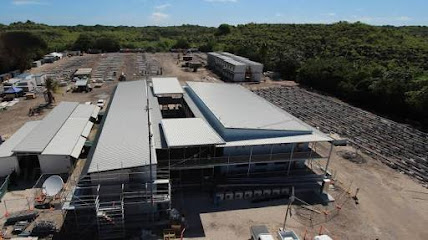
Capelle and Partner
Experience the essence of Ronave at Capelle and Partner, a vibrant shopping mall offering diverse stores and local cuisine in a lively atmosphere.
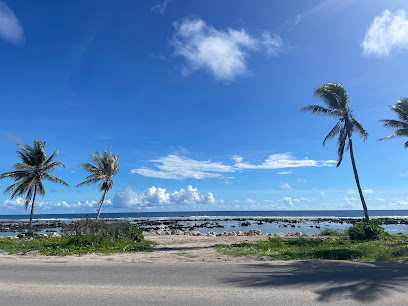
Ewa Lodge
Discover tranquility at Ewa Lodge in Ronave, where comfort meets the beauty of nature for an unforgettable getaway.
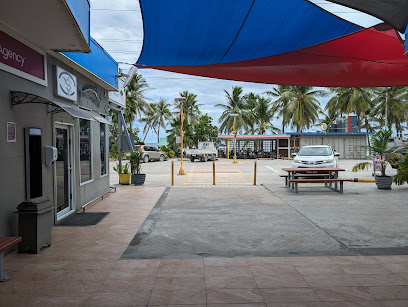
Geography of Nauru
Explore the enchanting landscapes and rich cultural heritage of Nauru, a hidden Pacific paradise perfect for adventurous tourists.
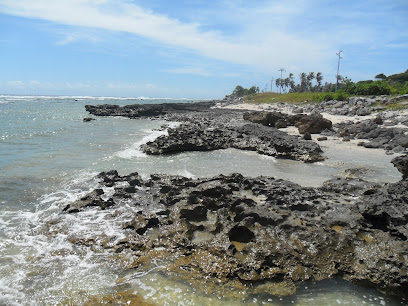
Parliament House
Explore Parliament House in Yaren, a symbol of Nauru's governance and architectural beauty, offering insights into the nation's political heritage.
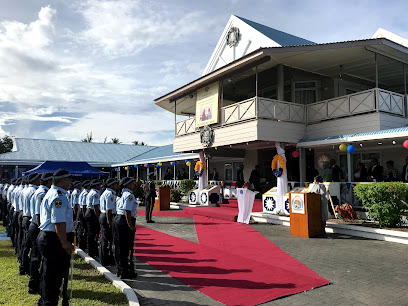
Nauru
Discover the unspoiled beauty and rich culture of Nauru, the Pacific's hidden paradise, where adventure and tranquility await every traveler.
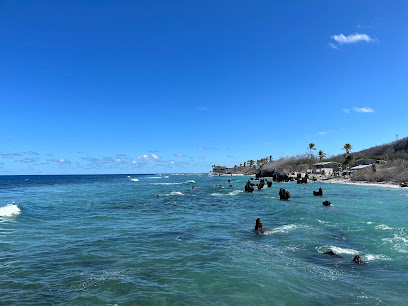
Anibare Bay
Discover the enchanting beauty of Anibare Bay, Nauru, where pristine waters meet lush landscapes for an unforgettable tropical experience.
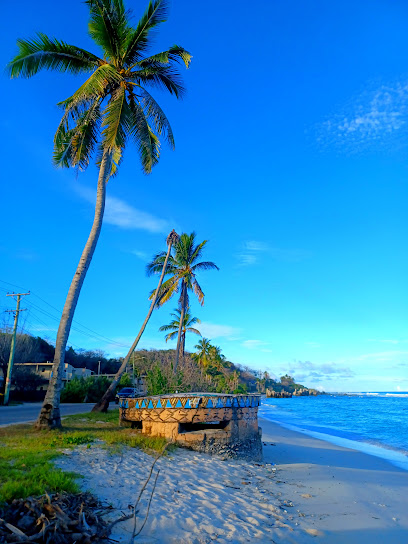
Nauru Independent Church
Discover spiritual tranquility and local culture at Nauru Independent Church, a serene landmark in Yaren, showcasing the heart of Nauruan community life.
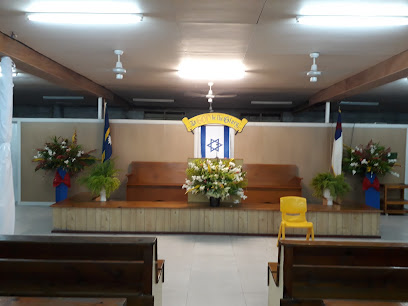
Meneng 1
Experience the warmth of local hospitality at Meneng 1 Guest House in Ibwenape, where comfort meets cultural immersion.
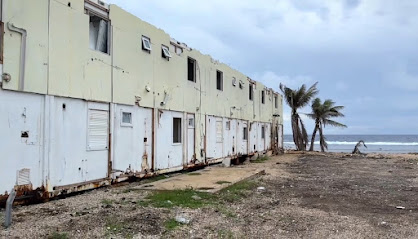
Lovoni Baptist Church
Explore Lovoni Baptist Church in Ronave, a serene spiritual retreat that showcases local culture and invites visitors to experience community and tranquility.
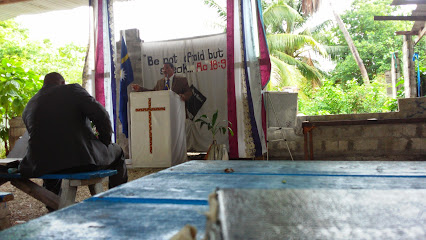
Ella Park
Explore the tranquil beauty of Ella Park in Yaren, Nauru, where lush landscapes and serene surroundings offer a perfect retreat for nature lovers.
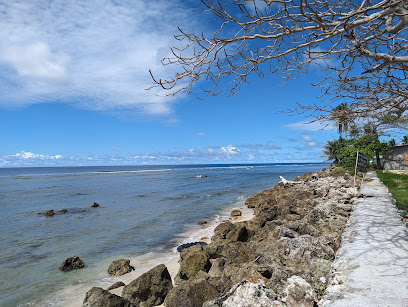
WWII Memorial Monument
Explore the WWII Memorial Monument in Orro, a poignant landmark honoring the sacrifices of those who served in World War II.
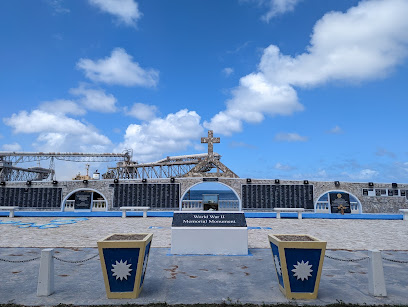
Nauru Lookout Tower
Discover stunning panoramic views and rich cultural insights at the Nauru Lookout Tower, a must-visit scenic spot on your Nauru adventure.
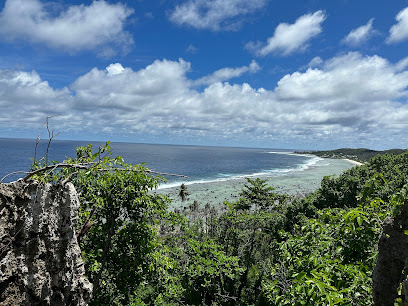
Moqua Well
Explore the serene beauty of Moqua Well, a hidden freshwater lake in Nauru, perfect for relaxation and nature lovers seeking tranquility.
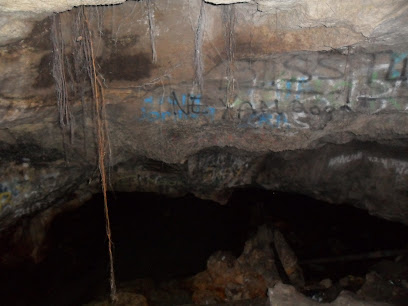
WW2 Japanese Bunker
Discover the WWII Japanese Bunker in Anabar, an evocative historical landmark that reveals the secrets of the past amidst stunning natural beauty.
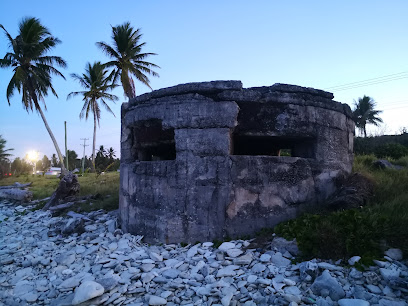
Unmissable attractions to see
Ella Park
Experience tranquility and natural beauty at Ella Park in Yaren, a perfect escape for nature lovers and a serene spot for relaxation.
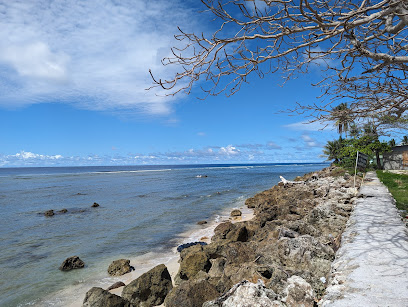
Aredetõ park
Experience the tranquility of Aredetô Park in Arenibek, where nature meets serenity in a picturesque setting perfect for relaxation and family outings.
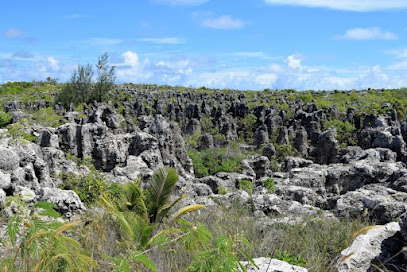
Ubweno Buada
Discover the lush landscapes and tranquil atmosphere of Ubweno Buada, a beautiful park in Arenibek, perfect for relaxation and exploration.
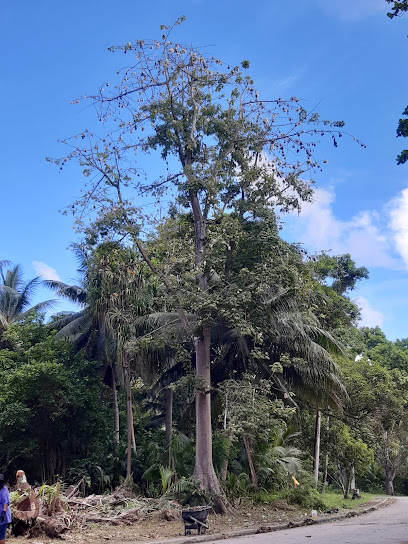
Meneng Cave
Discover the enchanting Meneng Cave in Anibare, Nauru – a natural wonder filled with stunning rock formations and rich cultural history.
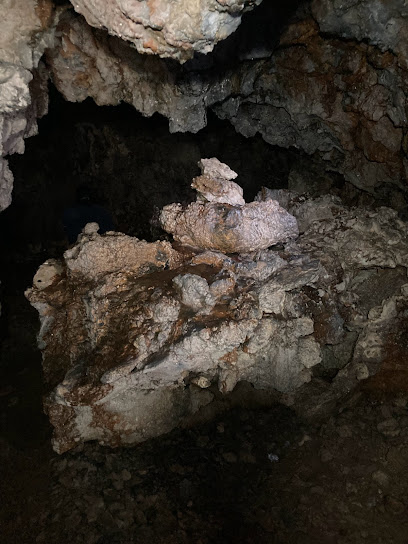
Anibare Bay Beach
Discover the serene beauty of Anibare Bay Beach, a pristine tropical paradise in Nauru ideal for relaxation, adventure, and unforgettable memories.
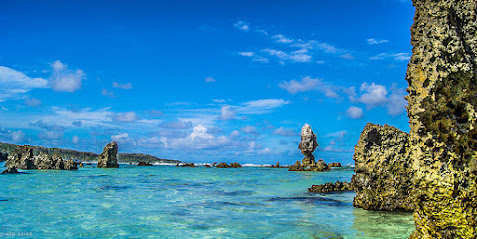
Buada National Park
Discover the untouched beauty and serene trails of Buada National Park, a hiking paradise in Arenibek, perfect for nature lovers and adventure seekers.

Essential places to dine
The Bay Restaurant
Experience exquisite local flavors at The Bay Restaurant in Anibare, where culinary artistry meets breathtaking coastal views.
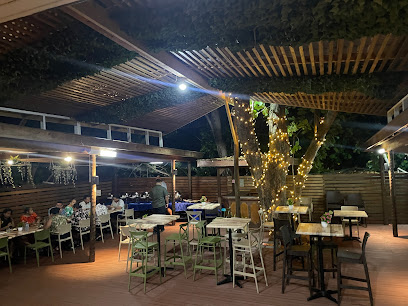
OMG Sushi Restaurant
Experience the best of Japanese cuisine at OMG Sushi Restaurant in Orro – where fresh ingredients meet masterful preparation.
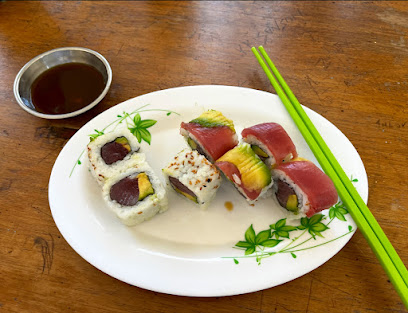
Mr Chippies
Savor the authentic taste of island life at Mr Chippies – Anibare's favorite spot for fresh seafood and local delights.
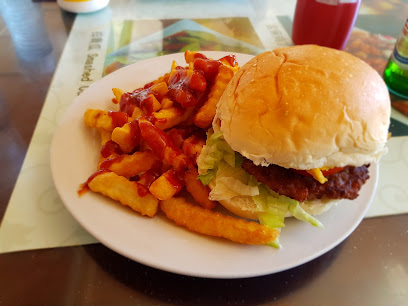
Star Kingdom
Experience authentic Asian flavors at Star Kingdom in Boe - where culinary traditions meet modern dining.
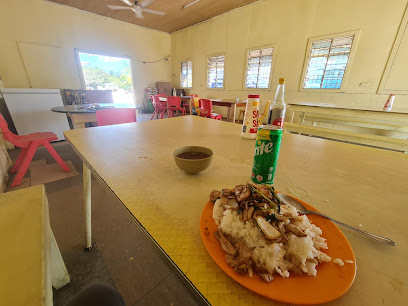
Chinese Restaurant Buada
Experience authentic Chinese flavors at Chinese Restaurant Buada in Arenibek - a culinary delight awaits every visitor.

Praises Restaurant
Discover authentic Chinese flavors at Praises Restaurant in Anabar - a culinary experience that delights every palate.
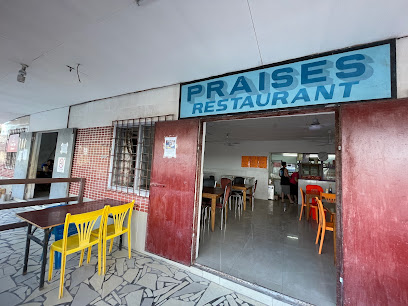
Anibare Boat Harbour Restaurant
Experience authentic local cuisine with stunning harbor views at Anibare Boat Harbour Restaurant.
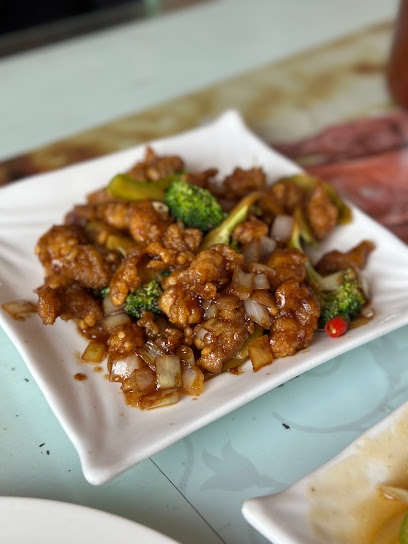
Florrowest Restaurant
Experience authentic local flavors at Florrowest Restaurant in Boe – where every meal tells a story.
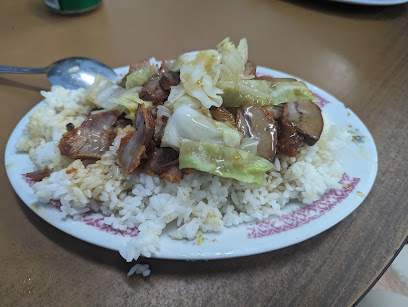
Somewhere Else in Nauru
Experience authentic Nauruan flavors at Somewhere Else in Arijejen - where every meal tells a story.
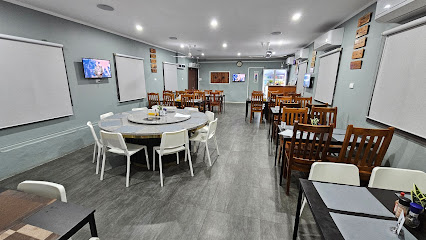
Moon River Restaurant
Savor exquisite Chinese cuisine with stunning waterfront views at Moon River Restaurant in Arijejen.
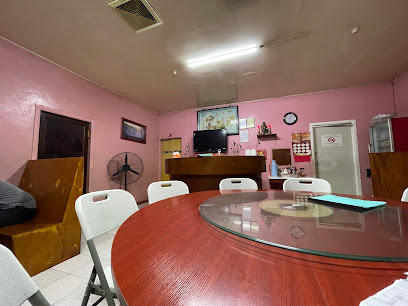
Lucky Tigeress Yum Cha
Experience the best of Arijejen with delicious yum cha at Lucky Tigeress Yum Cha – where breakfast becomes an unforgettable culinary journey.
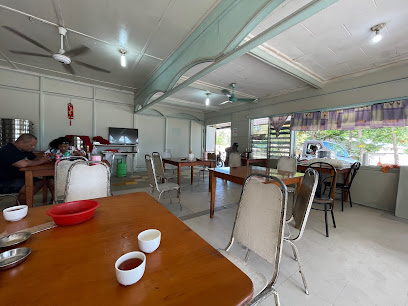
Jullem
Discover the flavors of China at Jullem in Anibare - where authentic cuisine meets welcoming hospitality.
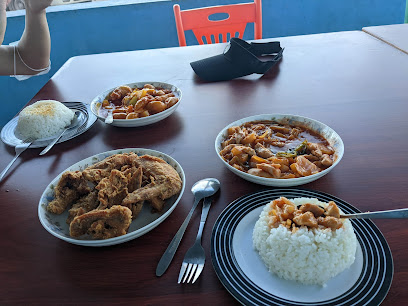
J’ RESTAURANT
Savor the authentic taste of China at J’ Restaurant in Arijejen - where tradition meets flavor in every dish.
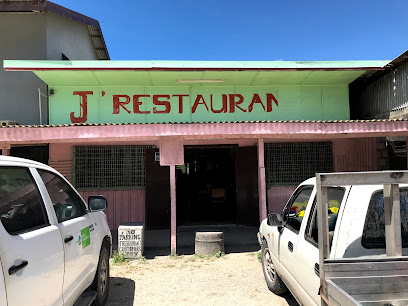
Double J
Discover authentic flavors at Double J in Ibwenape - where local cuisine meets warm hospitality in an inviting atmosphere.
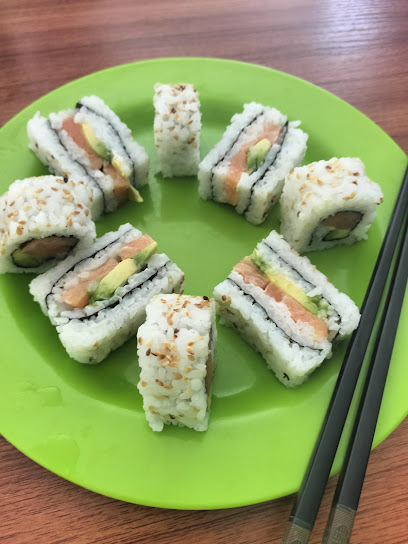
Crystal Kitchen
Experience the warmth of family dining at Crystal Kitchen in Anibare—where every meal is crafted with love and local flavors.
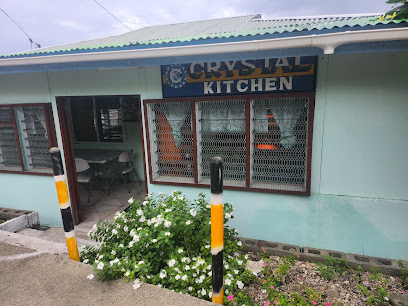
Markets, malls and hidden boutiques
Eigigu Supermarket
Explore local flavors and vibrant culture at Eigigu Supermarket, your essential stop in Boe, Nauru.
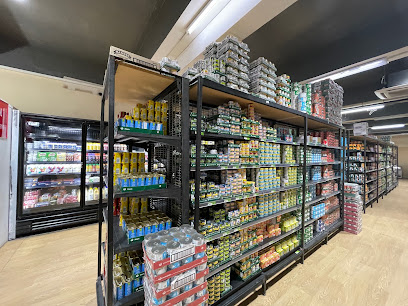
Pacific store
Explore Nauru's local flavors at Pacific Store in Nibok, where fresh produce and island delicacies await every traveler.
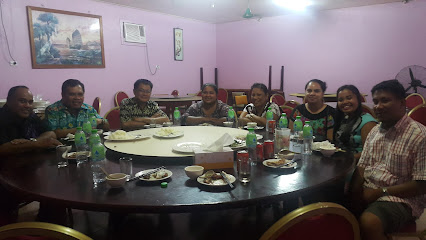
Zombies Store
Explore Zombies Store in Yaren for unique local goods and souvenirs that capture the essence of Nauru's rich culture.

Vim No.1 Store
Explore the vibrant culinary landscape of Nauru at Vim No.1 Store, a local grocery gem in Arijejen offering a delightful selection of local and international products.
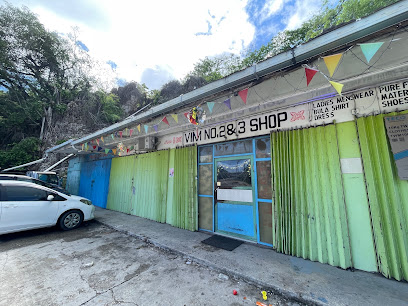
Ataro Bay Store
Discover local flavors and essentials at Ataro Bay Store, your go-to grocery destination in the heart of the island's charm.
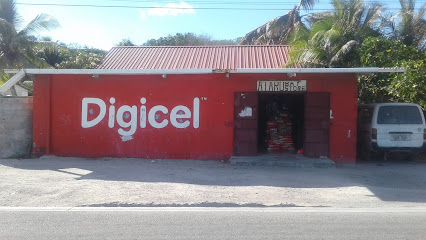
Elizabeth's Garden
Discover local crafts and unique souvenirs at Elizabeth's Garden in Boe, where friendly service meets the charm of island artistry.
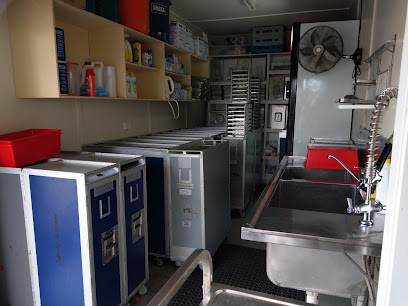
Sunset Corner Enterprise
Explore the charm of Borderline at Sunset Corner Enterprise, your go-to general store for local goods and unique souvenirs.

Rainbow Store
Explore local flavors and essentials at Rainbow Store, Baiti's vibrant convenience store for tourists and locals alike.
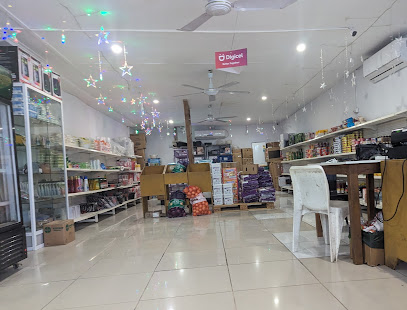
Tuka Luka Store
Explore Tuka Luka Store in Yaren for a unique shopping experience, blending local culture and fashion in the heart of Nauru.

MyStore
Experience the local charm of MyStore in Yaren, your one-stop shop for essentials and unique souvenirs during your travels.

Aredetõ Store
Discover Aredetõ Store in Arenibek for all your travel essentials, snacks, and beverages in a friendly and convenient setting.

Abwan Warehouse
Explore the vibrant Abwan Warehouse in Arijejen, where local craftsmanship meets unique home goods for every taste.

Halo Store
Experience the local charm at Halo Store, your one-stop shop for unique crafts and essentials in Arenibek.
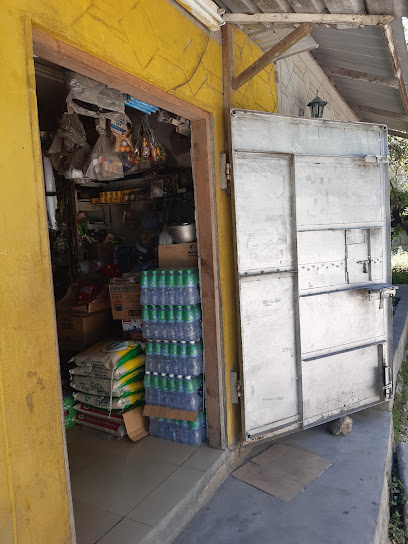
Sparkle 7
Explore Sparkle 7 in Iangan for unique smart shopping, blending local culture with modern innovation for an unforgettable experience.

IJ Store
Explore the vibrant local flavors at IJ Store in Ijuw, where fresh produce and community spirit meet.

Essential bars & hidden hideouts
The Bay Restaurant
Discover the flavors of Anibare at The Bay Restaurant, where fresh seafood meets stunning ocean views for an unforgettable dining experience.
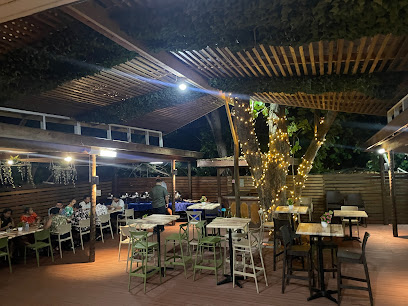
Jules On The Deck
Discover the perfect blend of relaxation and vibrant nightlife at Jules On The Deck, a bar renowned for its stunning sunset views and inviting atmosphere.
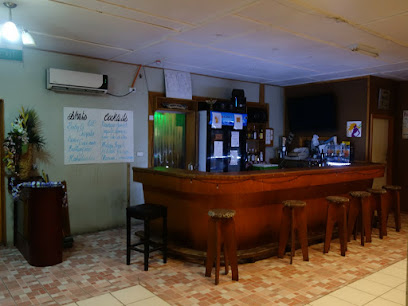
Reef Bar
Experience the vibrant atmosphere and stunning ocean views at Reef Bar, Anibare's ultimate destination for relaxation and refreshment.
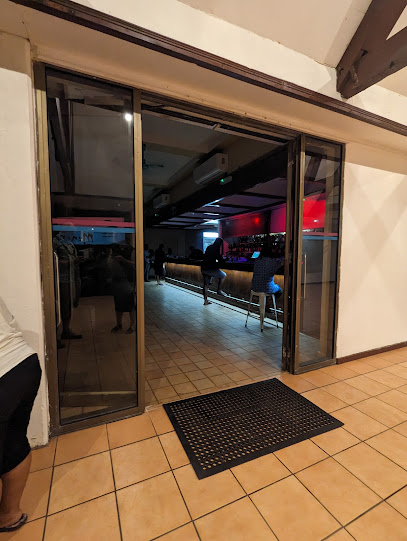
Mr Chippies
Experience the flavors of Anibare at Mr Chippies, a cozy restaurant serving delicious local cuisine in a laid-back atmosphere.
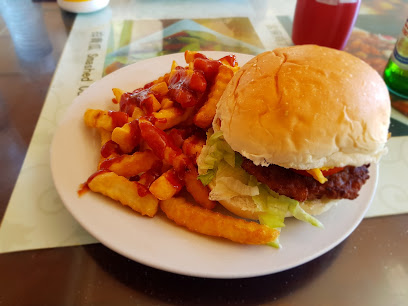
Anibare Boat Harbour Restaurant
Experience the vibrant flavors of Nauru at Anibare Boat Harbour Restaurant, where fresh seafood meets stunning ocean views.
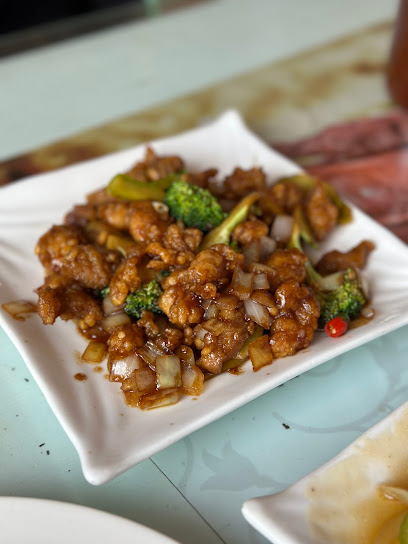
Somewhere Else in Nauru
Experience the flavors of Nauru at Somewhere Else, a charming restaurant in Arijejen, perfect for a delightful meal and warm hospitality.
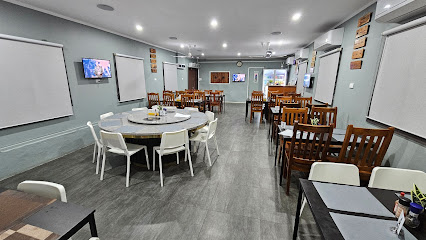
Florrowest Restaurant
Discover the flavors of Boe at Florrowest Restaurant, where local ingredients meet international cuisine in a cozy setting.
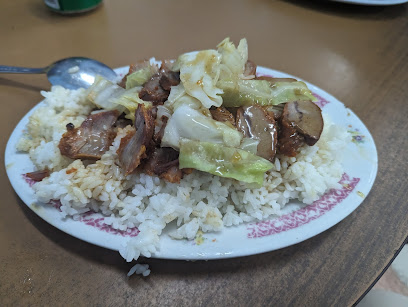
J’ RESTAURANT
Indulge in authentic Chinese cuisine at J’ RESTAURANT, where every dish is a delightful taste of tradition and creativity.
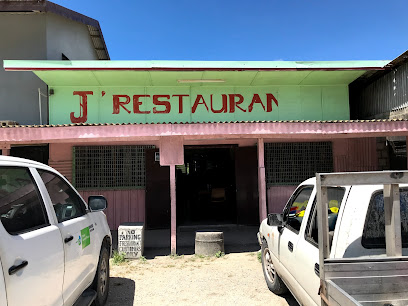
Double J
Discover the flavors of Ibwenape at Double J, a culinary gem offering local dishes in a warm, inviting setting perfect for all travelers.
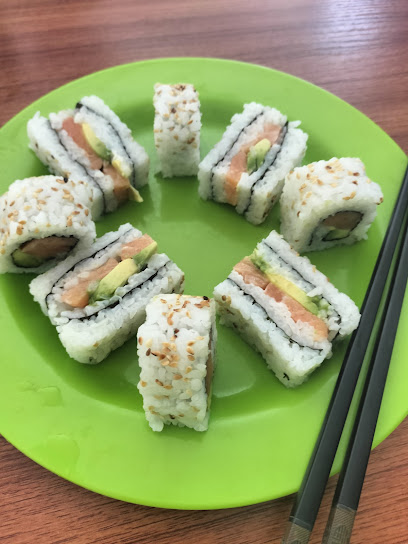
K-Love Restaurant
Discover a culinary haven at K-Love Restaurant in Yaren, where local flavors meet delightful international dishes.
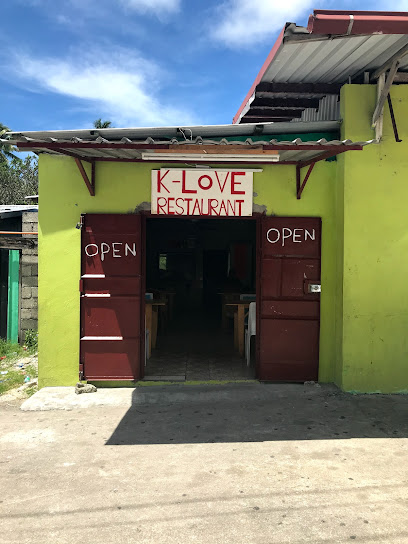
Golden Bridge Restaurant
Experience the rich and diverse flavors of authentic Chinese cuisine at Golden Bridge Restaurant in Yangor, where every bite tells a story.
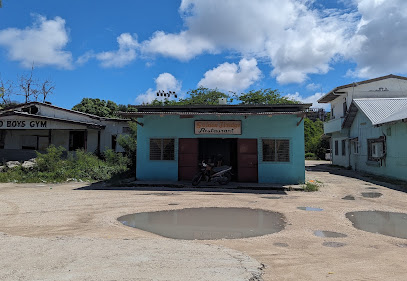
Milk Bar
Experience the best milk-based drinks at Milk Bar in Yangor—your cozy retreat for refreshing beverages and local flavors.
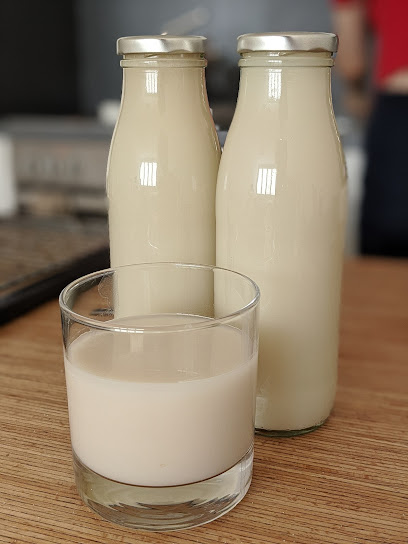
AIA Grog bar
Experience vibrant nightlife at AIA Grog Bar in Anabar, where refreshing drinks and local culture meet for an unforgettable night out.

Angel Grog Bar
Explore the vibrant nightlife of Yaren at Angel Grog Bar, a perfect blend of cocktails, camaraderie, and island vibes.

Local Phrases
-
- HelloKamawen
[ka-ma-wen] - GoodbyeKamenga
[ka-meng-a] - YesEa
[e-a] - NoAmea
[am-e-a] - Please/You're welcomeKamangman
[ka-mang-man] - Thank youKamawen ngi
[ka-ma-wen ngi] - Excuse me/SorryKabwakwak
[ka-bwa-kwak] - How are you?Kamawen eni
[ka-ma-wen eni] - Fine. And you?Mwakmwen. Ngi eni?
[mwa-km-wen. ngi eni?] - Do you speak English?Ea mwen i tangin inglis?
[e-a m-wen i tang-in ing-lis?] - I don't understandAmea ngi
[am-e-a ngi]
- HelloKamawen
-
- I'd like to see the menu, pleaseKamawen i tawin menu, kamangman
[ka-ma-wen i ta-win men-u, ka-mang-man] - I don't eat meatAmea i tawin mwen
[am-e-a i ta-win m-wen] - Cheers!Mwakmwen!
[mwa-km-wen!] - I would like to pay, pleaseKamawen i tawin i kai, kamangman
[ka-ma-wen i ta-win i kai, ka-mang-man]
- I'd like to see the menu, pleaseKamawen i tawin menu, kamangman
-
- Help!Tawin!
[ta-win!] - Go away!Kamenga!
[ka-meng-a!] - Call the Police!Tawin i polis!
[ta-win i pol-is!] - Call a doctor!Tawin i dokta!
[ta-win i dok-ta!] - I'm lostAmea i lus
[am-e-a i lus] - I'm illAmea i taimwen
[am-e-a i ta-im-wen]
- Help!Tawin!
-
- I'd like to buy...Kamawen i tawin kai...
[ka-ma-wen i ta-win kai...] - I'm just lookingAmea i tawin i meni
[am-e-a i ta-win i men-i] - How much is it?I tawin ni i kai?
[i ta-win ni i kai?] - That's too expensiveI mwen ni i kai mwak, kamawen
[i m-wen ni i kai mwa-k, ka-ma-wen] - Can you lower the price?I tawin ni i kai, kamawen
[i ta-win ni i kai, ka-ma-wen]
- I'd like to buy...Kamawen i tawin kai...
-
- What time is it?I tawin ni i taim?
[i ta-win ni i ta-im?] - It's one o'clockI taim ni i tawin
[i ta-im ni i ta-win] - Half past (10)I tawin ni i taim men ni
[i ta-win ni i ta-im men ni] - MorningKamawen i la
[ka-ma-wen i la] - AfternoonKamawen i tawin
[ka-ma-wen i ta-win] - EveningKamawen i te
[ka-ma-wen i te] - YesterdayKamawen i tawin la
[ka-ma-wen i ta-win la] - TodayKamawen i ni
[ka-ma-wen i ni] - TomorrowKamawen i mwen
[ka-ma-wen i m-wen] - 1Taim
[ta-im] - 2Taimmen
[ta-im-men] - 3Taim men ni
[ta-im men ni] - 4Taim men mwen
[ta-im men m-wen] - 5Taim men taim
[ta-im men ta-im] - 6Taim men taimmen
[ta-im men ta-im-men] - 7Taim men taim men ni
[ta-im men ta-im men ni] - 8Taim men taim men mwen
[ta-im men ta-im men m-wen] - 9Taim men taim men taim
[ta-im men ta-im men ta-im] - 10Taim men taim men taimmen
[ta-im men ta-im men ta-im-men]
- What time is it?I tawin ni i taim?
-
- Where's a/the...?I tawin ni a/the...?
[i ta-win ni a/the...?] - What's the address?I tawin ni i nuku?
[i ta-win ni i nu-ku?] - Can you show me (on the map)?I tawin ni i tawin i meni (i lal)?
[i ta-win ni i ta-win i men-i (i lal)?] - When's the next (bus)?I taim ni i tawin (bis)?
[i ta-im ni i ta-win (bis)?] - A ticket (to ....)I tawin ni i tekete (to ....)
[i ta-win ni i te-ke-te (to ....)]
- Where's a/the...?I tawin ni a/the...?
History of Ijuw
-
The area now known as Ijuw in Nauru has been inhabited for at least 3,000 years. The earliest settlers were Micronesians and Polynesians who navigated the vast Pacific Ocean to make Nauru their home. These early inhabitants established small, self-sufficient communities, relying on the rich marine life and the fertile soil for sustenance.
-
The traditional culture of Ijuw is deeply rooted in the customs and practices of the indigenous Nauruan people. Society was organized into twelve clans, each with its own distinct identity. The people of Ijuw were known for their skills in fishing, weaving, and crafting tools from natural materials. Oral traditions, songs, and dances played a crucial role in preserving the history and cultural heritage of the community.
-
In the late 19th century, Nauru, including Ijuw, came under the influence of European colonial powers. German settlers arrived in the 1880s, and Nauru was annexed by Germany in 1888. The colonial period brought significant changes to the island’s social and economic structures. The discovery of phosphate deposits in 1900 led to increased foreign interest and the eventual establishment of large-scale mining operations.
-
During World War II, Ijuw, like the rest of Nauru, experienced significant hardship. The island was occupied by Japanese forces from 1942 to 1945. The occupation led to forced labor, food shortages, and displacement of the local population. Many Nauruans, including residents of Ijuw, were evacuated to other islands. The war left a lasting impact on the community, with remnants of military installations still visible in the area.
-
After World War II, Nauru came under the administration of the United Nations, with Australia, New Zealand, and the United Kingdom acting as trustees. The post-war period was marked by efforts to rebuild and modernize the island. Nauru gained independence in 1968, becoming one of the world's smallest republics. In the years following independence, the community of Ijuw participated in national efforts to develop infrastructure and improve living standards.
-
The discovery of phosphate deposits in Nauru had a profound impact on Ijuw and the entire island. Phosphate mining became the backbone of Nauru's economy, providing significant revenue. However, the environmental consequences of extensive mining were severe, leading to land degradation and loss of arable land. The people of Ijuw, along with the rest of Nauru, faced the challenge of balancing economic benefits with environmental sustainability.
-
Today, Ijuw is a testament to the resilience and adaptability of its people. The community has embraced modernity while striving to preserve its cultural heritage. Efforts are ongoing to rehabilitate mined lands and develop sustainable economic activities. Tourism is emerging as a potential avenue for economic diversification, with Ijuw's rich history and natural beauty offering a unique experience for visitors.
Ijuw Essentials
-
Ijuw is located in the northeastern part of Nauru. The nearest airport is Nauru International Airport (INU) in Yaren District, approximately a 20-minute drive from Ijuw. From the airport, you can take a taxi or arrange for a pickup with your hotel. There are no direct international flights to Nauru from most countries, so you will likely need to transit through Brisbane, Australia.
-
Ijuw is a small area, and many attractions are within walking distance. For longer distances, taxis are available and can be arranged through your accommodation. There is no formal public transport system in Nauru, but some hotels offer shuttle services. Renting a bicycle can also be a great way to explore the island at your own pace.
-
The official currency in Nauru is the Australian Dollar (AUD). Credit cards are accepted in some hotels and restaurants, but it is advisable to carry cash, especially in smaller establishments. ATMs are available in the main areas, but it's wise to withdraw sufficient cash before heading to Ijuw to ensure you have enough funds.
-
Ijuw is generally a safe destination for tourists. However, like any travel destination, it is advisable to take standard precautions. Avoid walking alone at night in unfamiliar areas and keep an eye on your belongings. There are no specific high-crime areas targeting tourists, but it is always best to stay vigilant and aware of your surroundings.
-
In case of emergency, dial the local emergency number 110 for immediate assistance. The local police station and medical facilities are available in the main towns of Nauru. It is recommended to have travel insurance that covers medical emergencies. For minor health issues, there are pharmacies where you can purchase over-the-counter medications.
-
Fashion: Do dress modestly, especially when visiting local communities. Avoid wearing revealing clothing. Religion: Do respect local customs and traditions. Always ask for permission before taking photos of people. Public Transport: Since there is no formal public transport system, rely on taxis and hotel shuttles. Don't expect regular public buses. Greetings: Do greet people with a smile and a friendly 'Hello'. A slight nod of the head is also a sign of respect. Eating & Drinking: Do try local delicacies and accept food offerings graciously. Don't refuse hospitality, as it is considered impolite.
-
To experience Ijuw like a local, visit the local markets where you can buy fresh produce and traditional Nauruan goods. Engage with locals, as they are often friendly and willing to share stories about the area's history and culture. Don't miss exploring the nearby beaches and lagoons, which offer stunning views and a chance to relax away from the more touristy areas.
Nearby Cities to Ijuw
-
Things To Do in Anabar
-
Things To Do in Anibare
-
Things To Do in Uaboe
-
Things To Do in Buada
-
Things To Do in Denigomodu
-
Things To Do in Aiwo
-
Things To Do in Boe
-
Things To Do in Yaren
-
Things To Do in Kosrae
-
Things To Do in Mili
-
Things To Do in Majuro
-
Things To Do in Aur
-
Things To Do in Lata
-
Things To Do in Auki
-
Things To Do in Tulagi







